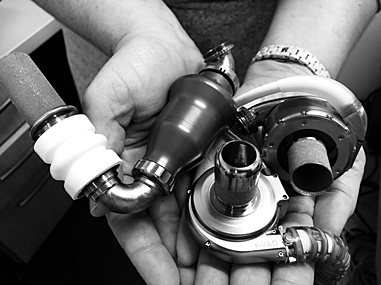University of Florida Health cardiologists show that socioeconomic status does not influence clinical outcomes after ventricular assist device implantation

A study led by physicians at the University of Florida College of Medicine’s Division of Cardiovascular Medicine has shown that survival benefit after ventricular assist device, or VAD, implantation is not influenced by socioeconomic status, or SES. Survival, 30-day readmission, complications of device support and prolonged implant length of stay, or LOS, were among the outcomes unaffected by SES.
“This study has shown that patients with low SES should not be denied evaluation for VAD simply on the basis of SES,” said Mustafa Ahmed, M.D., an assistant professor of medicine and the study’s lead author. One of the main advantages of this study compared with previous investigations involving the effect of SES on outcomes is that Dr. Ahmed’s team assessed SES using patient-level measures rather than census data.
This study is part of a broader program that aims to look beyond survival in VAD patients. As well as assessing quality metrics such as readmission and complication rates, cost-effectiveness and LOS, Dr. Ahmed plans to evaluate metrics related to patient-centered care, and carry out prospective studies to determine how to engage effectively with different types of patients, including those with low levels of health literacy. Dr. Ahmed’s team is also interested in developing robust models of psychosocial risk in order to improve preimplantation assessment of this important parameter.
These goals all feed into the overall aim of refining the identification of patients who are good candidates for VAD implantation and ensuring that all suitable patients are offered the opportunities afforded by referral to VAD teams, irrespective of SES.
“Patients with low SES often face barriers to referral for advanced treatments, such as VAD and transplantation,” said Dr. Ahmed. “Our study has shown that low SES does not increase risk and that these patients have the same benefits from VAD as other patients. Patients with low SES should be evaluated holistically in terms of their suitability for VAD.”